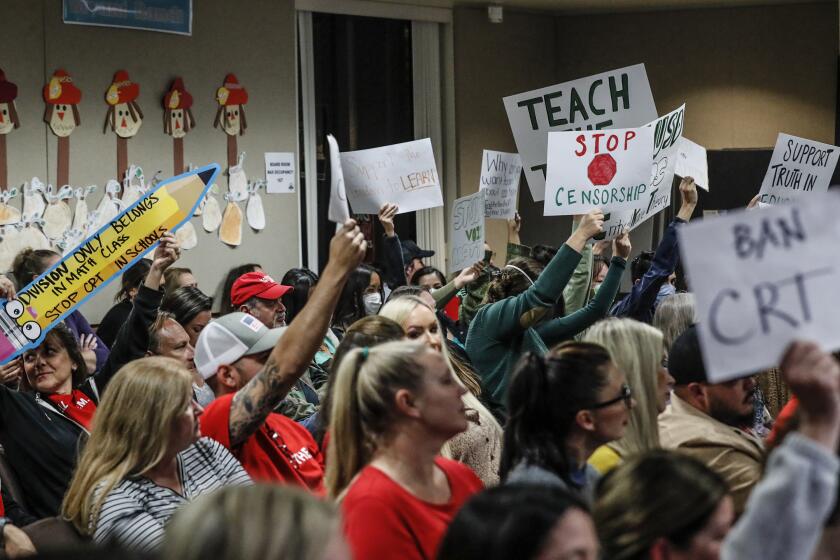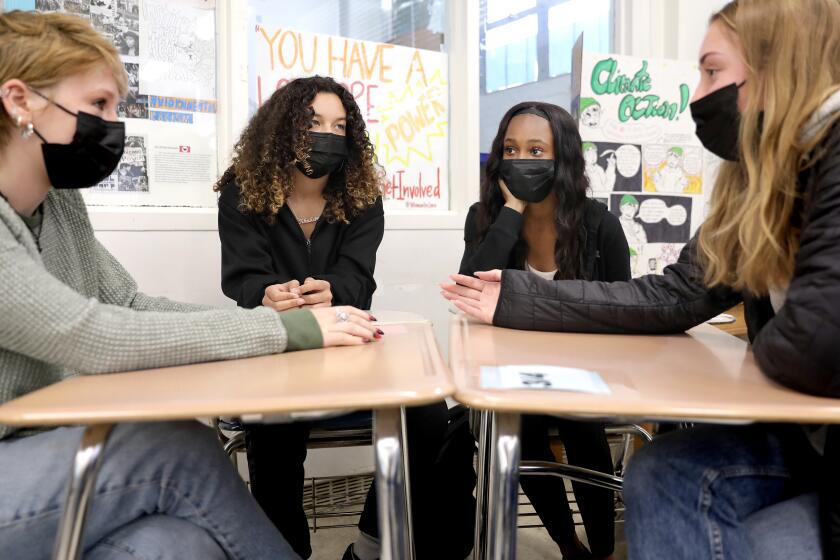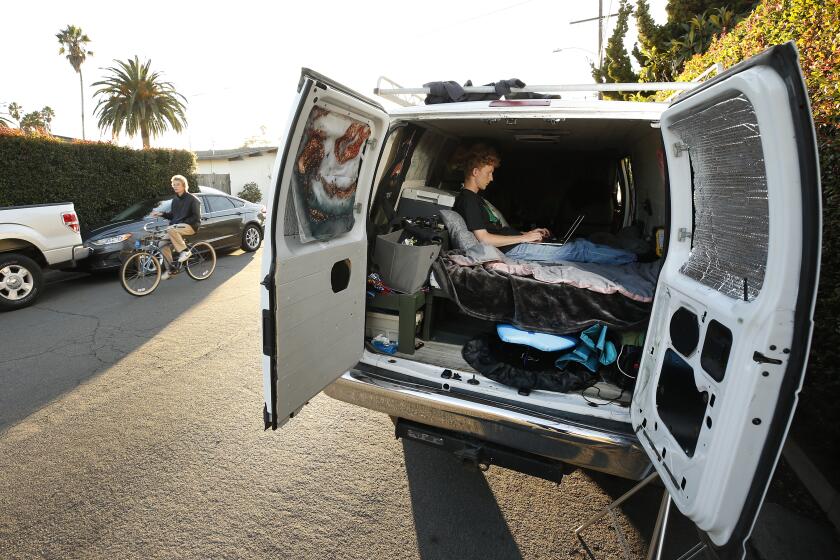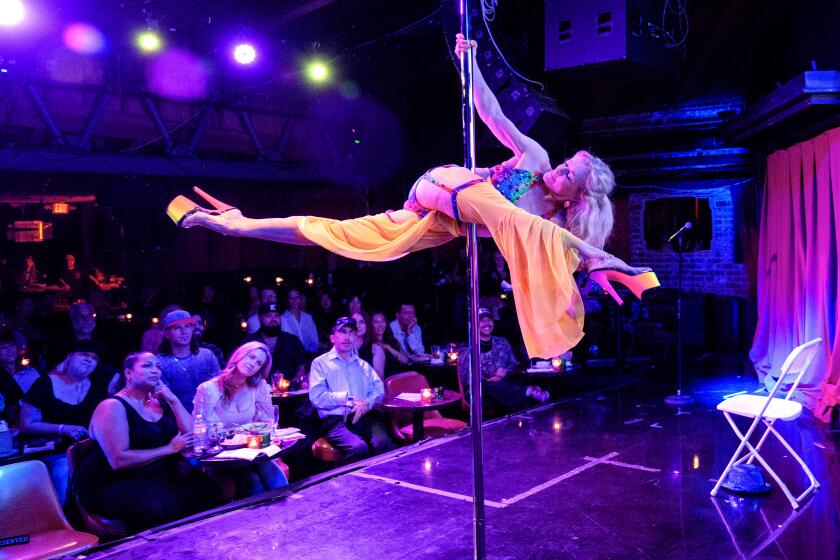A drama professor told students they got their feelings hurt too easily. They decided to fight back
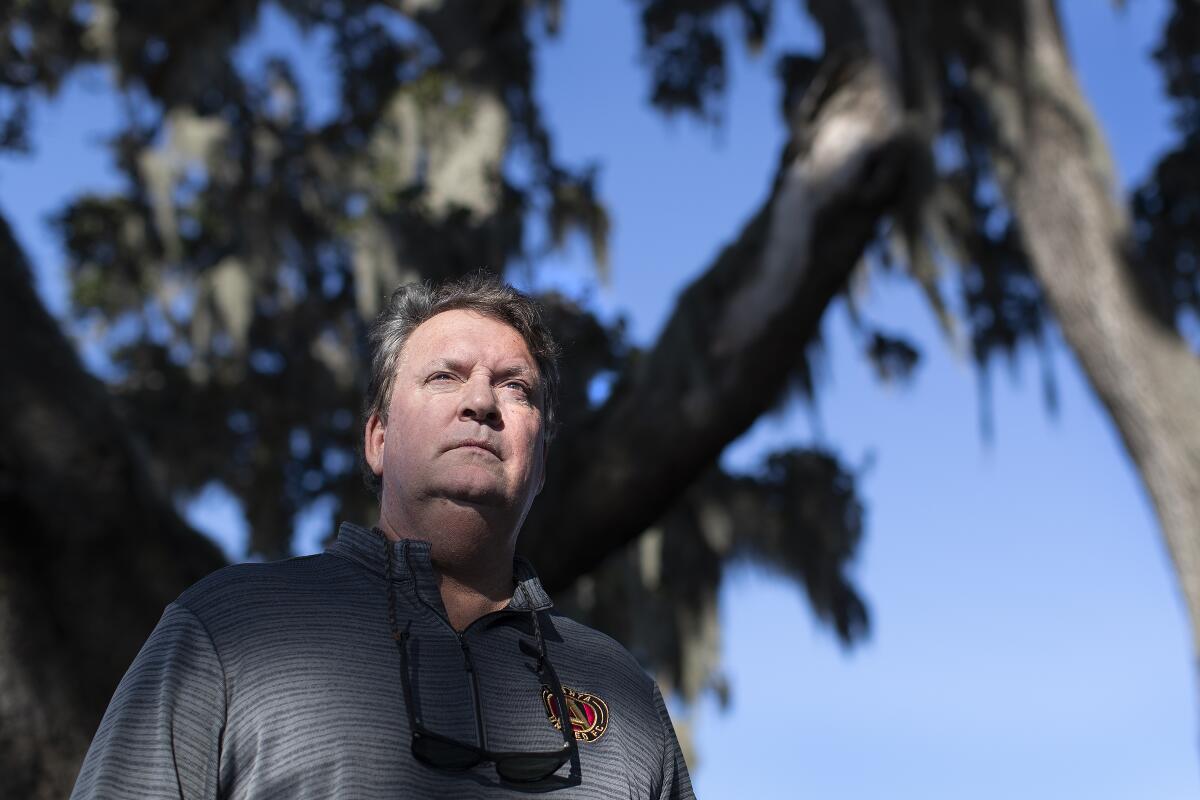
CONWAY, S.C. — It all started with a misunderstanding.
A Black theater student at Coastal Carolina University told a visiting drama teacher she wanted to connect with nonwhite students, so the teacher drew up a list of names on a whiteboard, then forgot to erase it when they left the studio.
When several other students walked in, they saw the list and were left with the suspicion that those on it had been singled out with racist intent.
A committee of professors investigated and promptly sent out a departmentwide email clarifying what had happened that September day. Seeking to calm students, the professors wrote that the explanation “in no way undermines the feelings that any of you feel about the incident” and that the faculty was “deeply sorry.”
The visiting teacher also wrote an apology: “No matter the good intention. ... I still want you to know I’m an idiot and I am sorry.”
Things might have ended there. But at a time when college campuses have become center stage for the polarizing issues of race, identity and what constitutes harm, the theater department was primed for conflict.
Enter Steve Earnest.
“Sorry but I don’t think it’s a big deal,” the 62-year-old drama professor, who is white, wrote in a “reply all” email. “Im just sad people get their feelings hurt so easily. And they are going into Theatre?”
Within minutes, his iPad lit up with messages, mostly from Black theater majors.
“Thinking like that is part of the problem,” wrote Kelis Herriott, a 21-year-old senior. “This department is a joke.”
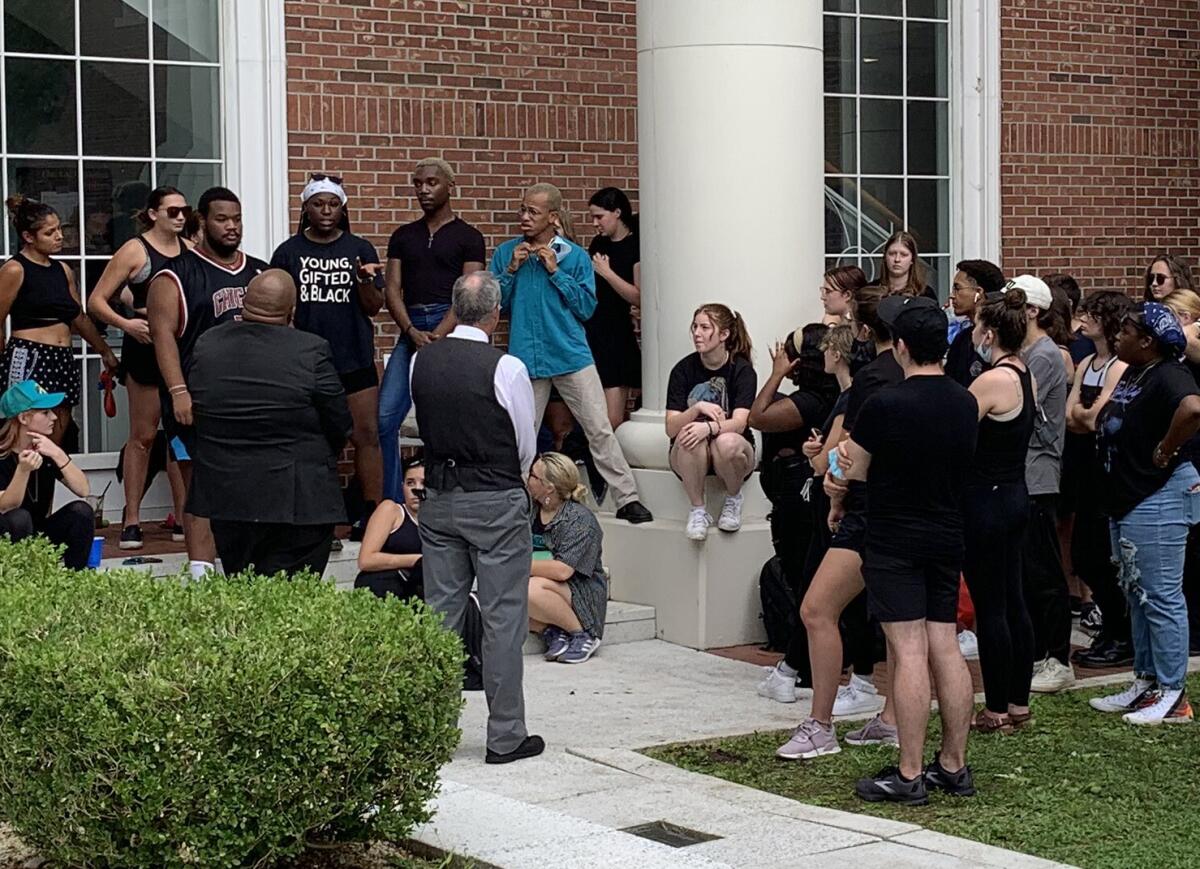
“Grow up. Full Offense,” wrote senior Jihad Levermore, 23, addressing Earnest, adding that instead of inquiring privately and trying to learn, “you decided to chalk it up to sensitivity.”
The professor replied that night. “Thanks for all of your hate mails!” he wrote, adding, “Deleting this chain.”
::
Raised by her grandparents in the small South Carolina city of Georgetown, Herriott fell in love with acting during a governor’s summer program for high school students.
Immersing herself in Shakespeare felt like a personal awakening. Playing a 70-year-old man in the Sam Shepard play “Buried Child” was a chance to channel the dialect and life experience of her grandfather.
Upon her enrollment at nearby Coastal Carolina University, which had wooed her with two scholarships, Herriott was assigned an advisor: Earnest.
At first, he struck her as laid-back and lenient. But as she got to know him more, she came to see him as out of touch and awkwardly inappropriate. Two incidents stood out.
An Orange County school district’s debate over critical race theory exemplifies how a hard-to-define academic concept has become a proxy for uncomfortable conversations about racial injustice in the U.S.
The first one was when he returned to campus after a fellowship in China. “Oh, wow, looks like you’ve shaped up well!” she said he told her. “You look so good now!”
Herriott understood that he was complimenting her on having lost weight — she had weighed more than 200 pounds when she joined the department — but it still felt wrong.
Then, just this fall, he advised her to audition for outdoor Shakespeare theater companies that were seeking diversity and “definitely casting people like you.”
She wondered if he told her that only because she is Black.
For his part, Earnest said that he didn’t recall ever mentioning her body and that while her race could help in the hiring market, her talent — her voice and her stage presence — was her biggest selling point.
Herriott, who never saw the whiteboard, was not surprised Earnest thought the students overreacted. But she was surprised he thought it was acceptable to say so. Or that other professors had not jumped into the email thread to tell him to stop.
Less than 24 hours after sending his first email, Earnest tried to make amends.
“I sincerely apologize for my statements that caused hurt,” he wrote, offering to meet with students. “I do have something of an empathy issue that I could improve on. My own children will attest to the fact that I have ingrained in me the old ‘just suck it up and move on’ mentality.”
The apology fell flat.
That night, Herriott asked herself: “Why am I doing all this homework to go to class and be awkward? And for other people to have to go to Steve’s class — like nothing happened.”
And so she gathered other students to organize a boycott.
“I should have control over my education to remove toxic people, regardless of freedom of speech, or whatever,” she said later. “Hate speech is hate speech.”
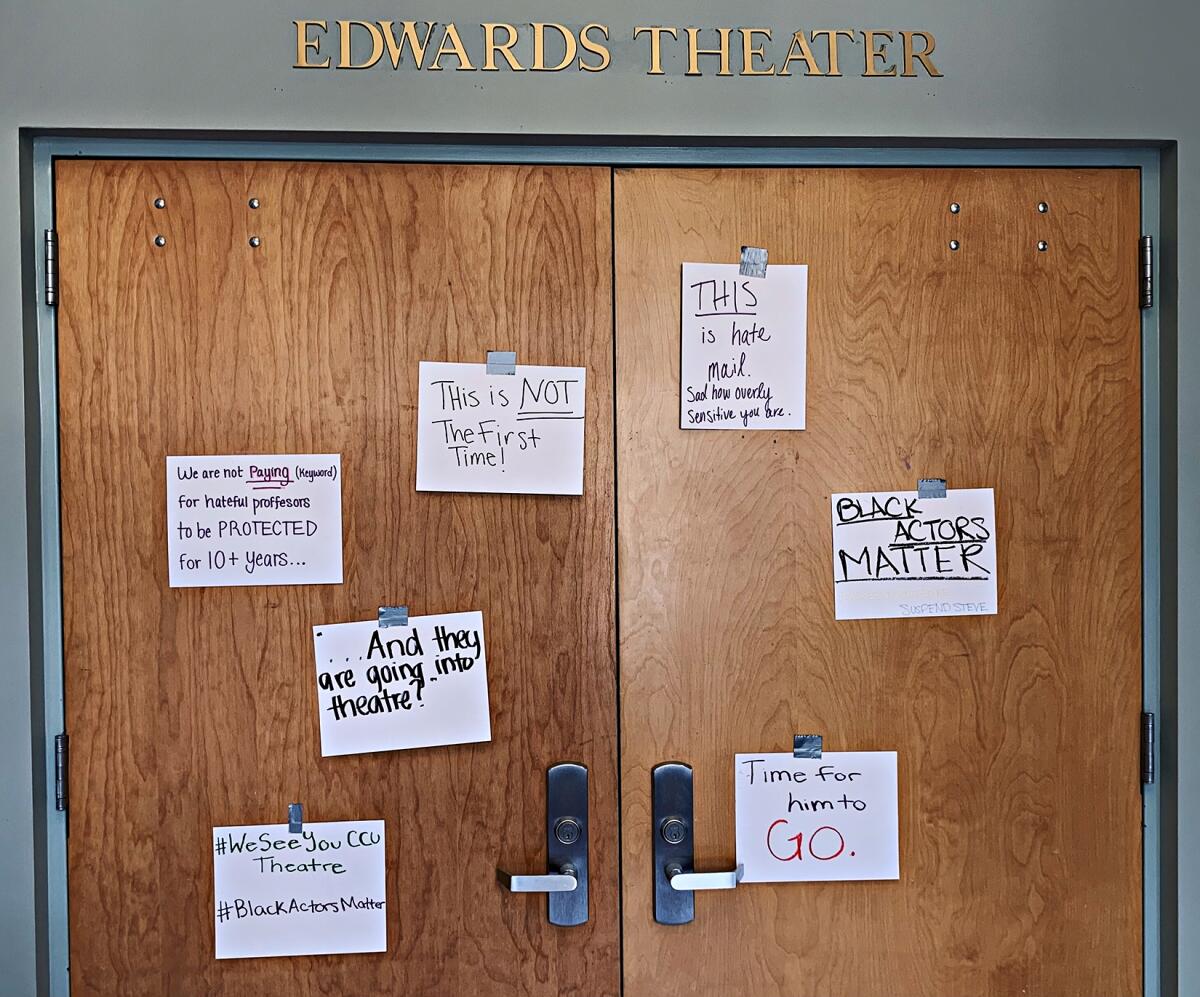
That Monday morning, dozens of students, dressed in black, skipped classes. Messages were pinned on doors and noticeboards across the humanities and arts building: “Fire the racist,” “TIME TO RESIGN” and “Black Actors Matter.”
Soon, local TV crews descended on the 10,000-student campus, which is about two-thirds white. By the end of the day, a dean had ordered Earnest not to come to classes.
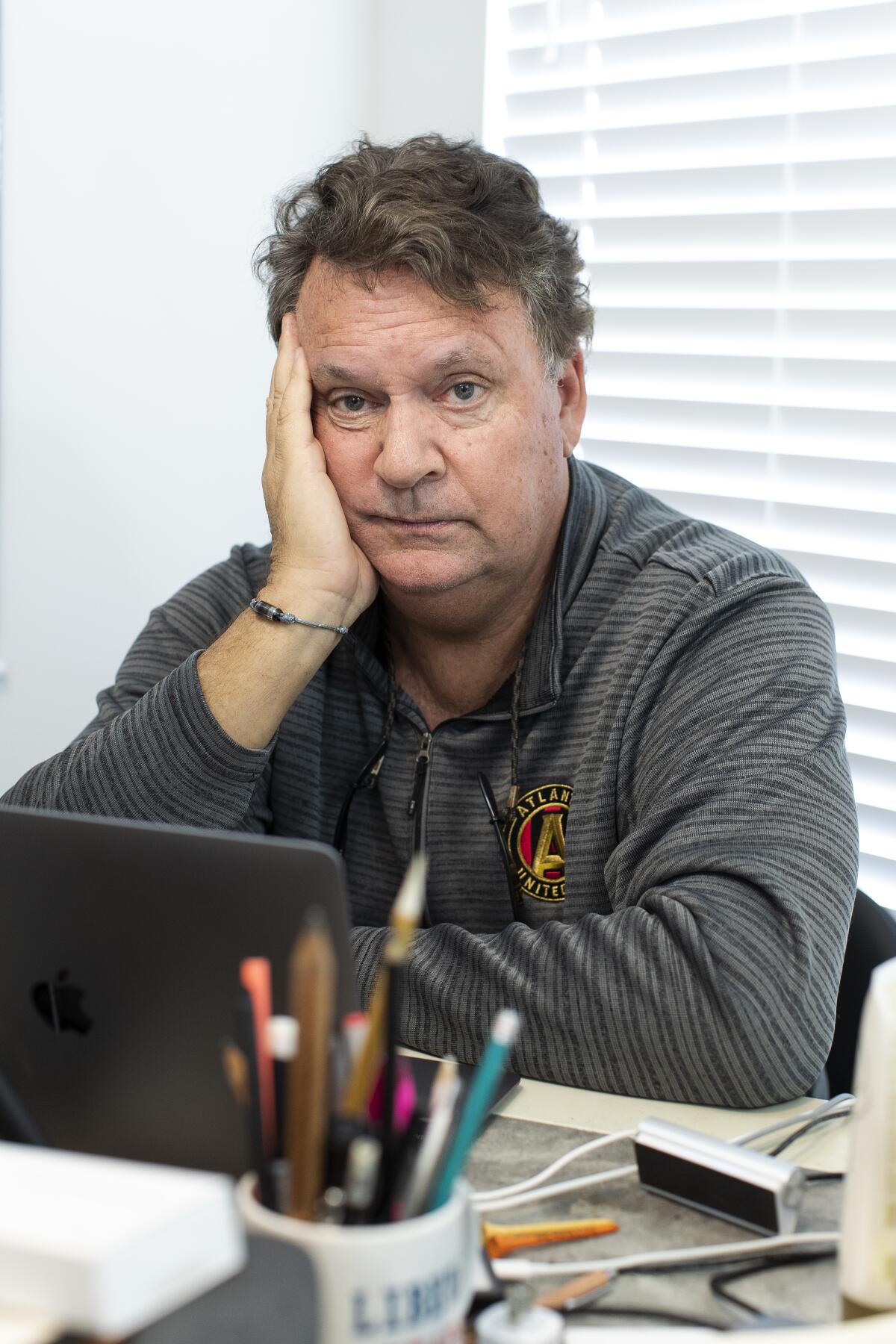
After working at the university for 16 years, he was no longer allowed to teach. He said no administrator told him what rule or policy he had broken.
“I’m not sure how I can defend myself, when I don’t even know what I’m accused of doing,” he said.
::
If there was one thing Earnest tried to instill in his students, it was toughness. He would warn them that acting is a brutal profession full of rejection and requires a sturdy exoskeleton to survive.
He himself is a rare species in the world of theater: a Donald Trump-voting conservative from a small town in Alabama with a deep passion for avant-garde European theater.
Among the videos his freshmen watch in class is a postmodern remake of Henrik Ibsen’s “The Wild Duck” that includes a scene in which a father places his penis on a table while his blind daughter swings at it with a hammer.
In his home office, he stores pens in a mug that reads “LIBERAL TEARS.”
He didn’t say too much about his political beliefs on campus. New social mores on comfort and safety, race and intersectionality felt unsettling to him and in his view made teaching more fraught.
And that was before the police murder of George Floyd in Minneapolis last year launched a nationwide reckoning over racism.
That summer, alumni took to Facebook to allege racism in the department, including a “Eurocentric colonized” curriculum and professors who had mispronounced their names and typecast or overlooked them for roles in plays because of skin color.
Alumni also created a website — “We See You CCU Theatre” — and a petition calling for the “deconstruction” of “racist structures” in the theater department that was “currently a harmful environment for BIPOC students.”
They noted that in 2015 the department staged two versions of William Inge’s “Picnic” — with one cast white and the other Black. Two years later in “Our Country’s Good,” a play by Timberlake Wertenbaker that opens with a prisoner being whipped, white students played Royal Marines running a penal colony in Australia while students of color played the convicts.
It wasn’t long before department leaders released a response: “We failed. We, the CCU Theatre department, were negligent in our responsibility to render care and compassion. … We acknowledge the pain and triggering.”
Ethnic studies is now required for future graduating California high school students. A look inside what students talk about in ethnic studies classes.
The department instituted several changes, forming a “diversity, equity and inclusion” committee, updating a pedagogical list of plays to include more diverse voices, hosting virtual town halls and requiring faculty to attend workshops including “Anti-Racism as a Daily Practice” and “From Snap Judgements to Micro-aggressions.”
In his Dramatic Theory and Criticism class, Earnest said, whenever the topic of race or gender came up, students were quick to dismiss his opinions.
“You don’t know,” he said they would tell him. “You’re of the wrong class and person to talk to me about this.”
The focus on identity, the whirlwind of Zoom workshops and diagrams of oppression all made Earnest feel — as an older, white, Christian, able-bodied, cisgender male — as though he was walking around campus with a target on his back, he said.
::
After Earnest was relieved from his teaching duties, he worked on the humanities and arts college’s annual report, published an article in the journal European Stages and auditioned for acting gigs.
Worried he would lose his job, he also took a real estate licensing exam.
Most distressing to Earnest was the rush of administrators to side with the students. He said that in a faculty Zoom meeting the department chair, Eric M. Hall, had characterized the words in his email as “white supremacist language.”
“I think of people burning crosses and wearing white robes,” Earnest said. “And that’s about as far away from me as I can ever imagine.”
Hall said in an email to the Los Angeles Times that “I do not recall making that statement.”
To students, Earnest’s dismissal of their concerns about the whiteboard episode was part of a pattern of racial insensitivity and boundary crossing, including an incident last November that had earned him widespread scorn in the department.
“Sorry, not attractive,” he wrote in a now-deleted comment on an Instagram post that showed a former student, Nikko Austen Smith, raising a middle finger to the camera.
Earnest said he meant his comment as friendly advice to someone he had worked closely with as a student, co-founding a tap dance club. Smith filed a Title IX complaint against him.
As in most workplaces, explicit discrimination — using racial slurs maliciously or grading students based on race or gender, for example — is grounds for termination.
Earnest’s case was more complicated. That he had not been blatantly racist didn’t excuse what students viewed as a lack of empathy and a refusal to get on board with the new mood of sensitivity on campus.
California’s student-housing crisis has forced hundreds of UC students to live in hotel rooms and vehicles. But campus building efforts have sparked litigation and outcry at campuses, including UC Santa Barbara.
Under pressure from students, administrators had to decide whether Earnest should be disciplined for violating those emerging norms. As more speech is construed as hurtful or even dangerous, can a professor be dismissed for creating an “uncomfortable” learning environment or “endangering” students?
The most painless solution, administrators told Earnest, would be an early retirement. But he and his wife had too little savings for that, and he worried that it would send the wrong message.
“It proves to students that you can’t speak out — if you think something, you can’t say it,” he said. “At some point someone has to stand up and say ‘no.’”
The Foundation for Individual Rights in Education, a nonpartisan nonprofit group that defends speech and due process on college campuses, took up his case. In a news release, its lawyers wrote that stopping him from teaching “is not only overly dramatic, but also unconstitutional.”
Conservative outlets swiftly picked up the story, which they cast as another example of a professor who had been “canceled” for voicing unpopular opinions or presenting contentious material in class.
Last month, Earnest filed a formal grievance with the dean of the college alleging that his rights to free speech, due process and academic freedom had been trampled.
Earnest later received a letter from the university saying that his behavior was under review to determine whether his emails “endangered the welfare of students” or violated the code of ethical conduct requiring employees to “create a respectful environment” and “nurture a climate of fairness and civility toward others … even in the face of disagreement.”
A few days later, more than two months since he had taught a class, the university informed him that the emails didn’t warrant disciplinary action “at this time.”
In a statement to the media, Daniel J. Ennis, the provost, wrote: “A university cannot succeed without freedom of expression, freedom of thought, and an environment that makes academic growth and development possible.”
But Ennis also made clear that those freedoms were not absolute and that the university “will never tolerate offensive behavior, harassment, or bullying.”
::
Earnest expects to return to teaching next month.
He said he would be more cautious about his behavior, taking care not to socialize with students or inject himself into conversations that are “none of my business.”
“I’m in the midst of an environment that is currently in flux and changing,” he said. “I have the ability to adapt, even at my age.”
At the same time, Earnest said, the controversy had also given him the opportunity to be a little more open about his conservative political beliefs.
“That doesn’t mean I have to put on a red-white-and-blue shirt and prance around a hall or whatever,” he said. “But I don’t have to be so hidden and so quiet.”
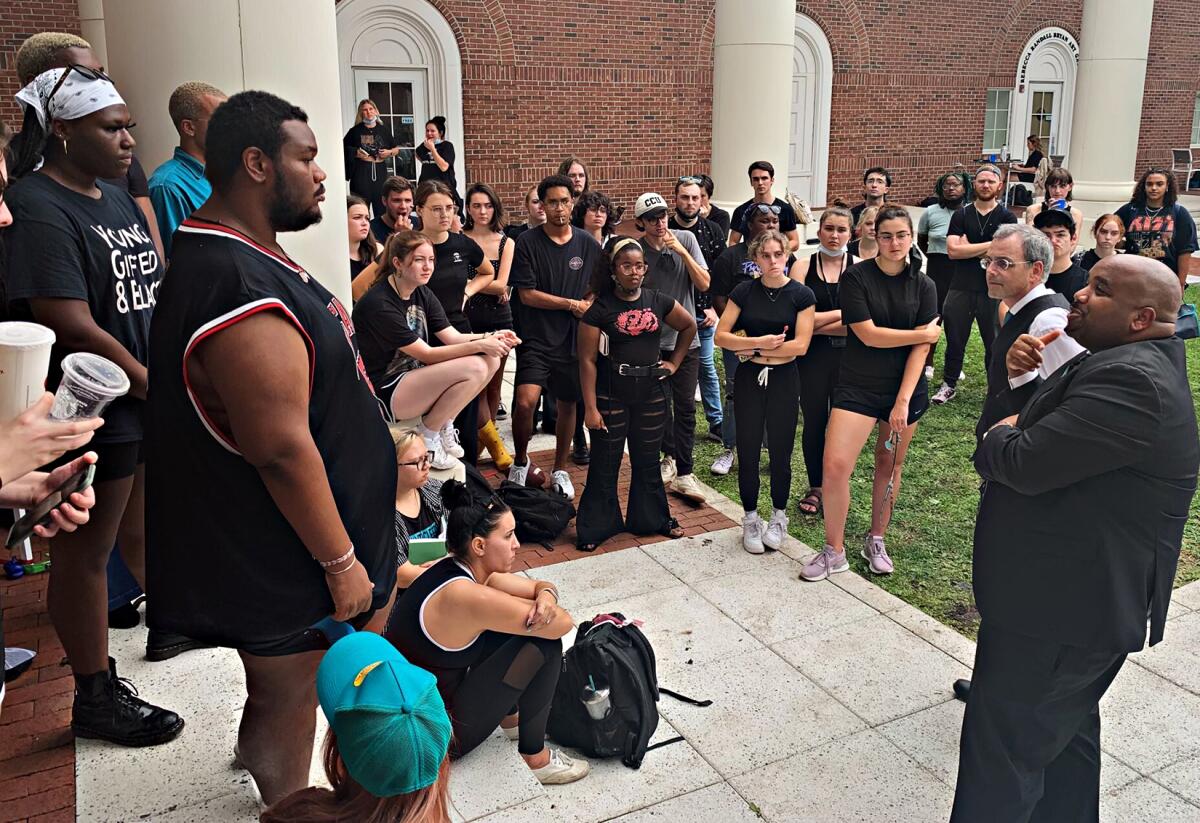
As for the students who led the boycott, they remain uneasy about Earnest coming back to campus.
“I need to know that this is a department where everybody, from whatever walk of life they come from, is just going to be able to be themselves here,” Levermore said. “That sounds so kumbaya, but I really do want a safe space for everyone.”
Including Earnest?
“Um, no,” he said. “You can believe whatever you want to believe, but I think that you need to be accepting of everyone and you need to know what you can and cannot say. … Steve should be able to be whoever he wants to be — as long as it doesn’t make anybody else feel unsafe.
“Keeping up with the times is important,” he added.
Even if Levermore was disappointed that Earnest was returning, he said he was not surprised. “I just hope that he’s open to growth as we move forward,” he said.
Herriott said she understands that some people think she and other students are unreasonable for refusing to accept Earnest’s presence on campus. But as a consumer who paid for her education — even with her scholarships, she had taken on jobs at a gym and a clothing store — she said she shouldn’t have to tolerate disrespect.
“When you put everything in perspective, people don’t know the entire story,” she said. “And I guess people will never know the entire story. And it’s just interesting how quickly people are able to judge.”
Asked whether she had any sympathy for Earnest, she paused.
“I wouldn’t say I do.”
More to Read
Sign up for Essential California
The most important California stories and recommendations in your inbox every morning.
You may occasionally receive promotional content from the Los Angeles Times.
